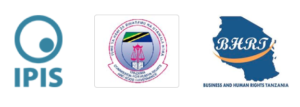This quarterly briefing series presents an overview of published news, articles and reports on business and human rights in four major economic sectors in Tanzania: resource extraction, agriculture, tourism and infrastructure. With this briefing we want to inform on recent events, trends, challenges and opportunities regarding business and human rights in Tanzania.
To receive this briefing, you can subscribe to our mailing list
2020 Briefings:
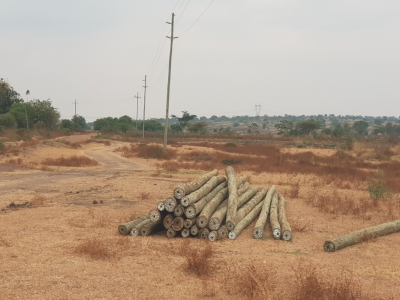
Briefing on “Business & Human Rights in Tanzania” 2020 Quarter 3: July – September
While infrastructure projects in Tanzania promise revenue, employment, economic growth and, hence, positive development, the sector’s rapid expansion raises its potential for adverse impacts on the communities and environments in which projects are implemented. 5 new case studies assessed the human rights impact of 3 energy supply projects– the East African Crude Oil Pipeline (Manyara region), the Regional Rusumo Falls Hydroelectric Project (Kagera region) and rural energy supply projects (Mwanza region) – and 2 projects involving transport infrastructure – the Tanzania Strategic Cities project (Arusha & Dodoma regions) and the Dar es Salaam – Moshi railway (Kilimanjaro region).
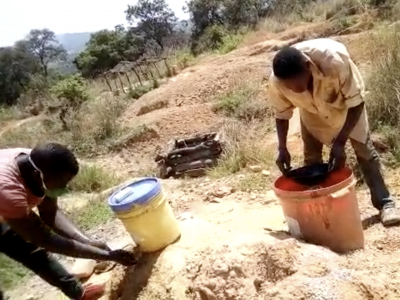
Briefing on "Business & Human Rights in Tanzania" – 2020 Quarter 2: April - June
The first imported case of Coronavirus disease (Covid-19) in Tanzania was reported on the 16th of March 2020. To protect people’s livelihoods and the country’s economy, no restrictions on economic activities were imposed. Nevertheless, the global shutdown of international travel did significantly affect revenue streams from all-time strongholds such as tourism, impacting the livelihoods of many in Tanzania and especially those in small businesses. In contrast, Tanzania’s extractive sector, and the export of gold specifically, continue to boost economic growth in the country, despite the global pandemic.
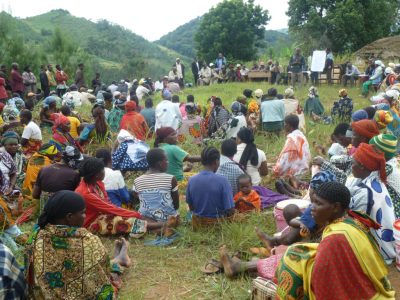
Briefing on "Business & Human Rights in Tanzania" – 2020 Quarter 1: January - March
In March 2020, key stakeholders from civil society, the business community and various government agencies from Tanzania mainland and Zanzibar met in Dar es Salaam to discuss the topics of “land rights and environment” during the second Annual Multi-stakeholder Dialogue on Business and Human Rights. “Land rights and environment” were identified as cross-cutting issues that affect the rights of many in various ways in Tanzania.
2019 Briefings:
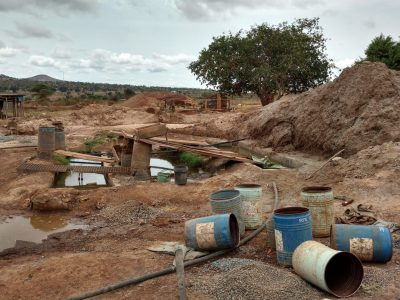
Briefing on "Business & Human Rights in Tanzania" – 2019 Quarter 3&4: July - December
The UN Guiding Principles on Business and Human Rights (UNGPs) underline the role of governments and businesses in the protection and respect of human rights. In their annual review, the Corporate Human Rights Benchmark Report observes that also in 2019 corporate progress on the implementation of the UNGPs is alarmingly low overall. Most companies seem to fail to show their respect for human rights.
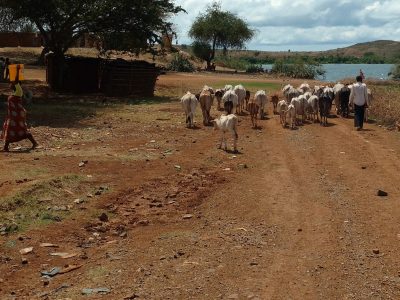
Briefing on "Business & Human Rights in Tanzania" – 2019 Quarter 2: April - June
In May 2019, the Legal and Human Rights Centre (LHRC) published its annual Tanzania Human Rights Report. This report examines how fundamental human rights - such as the right to life, freedom of expression, the right to work or the right to enjoy and benefit from natural resources - were enjoyed, protected, promoted and violated in 2018. While both government and non-government actors are working to improve human rights in the country, many challenges remain.
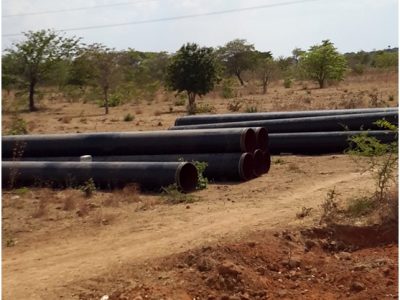
Briefing on "Business & Human Rights in Tanzania" – 2019 Quarter 1: January - March
Through their presence and activities, businesses can play an important role in promoting and harming human rights. As established in the United Nations (UN) framework, the UN Guiding Principles on Business and Human Rights, both governments and businesses have duties and responsibilities to protect and respect basic human rights. According to the global Corporate Human Rights Benchmark, published at the end of 2018, there is still a long way to go before companies truly put human rights at the heart of their business.
2018 Briefings:
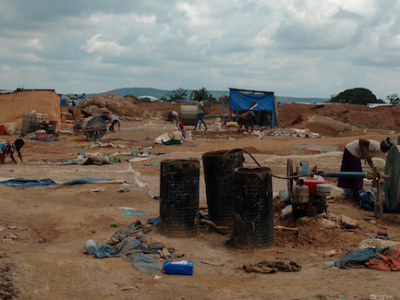
Briefing on "Business & Human Rights in Tanzania" – 2018 Quarter 3: July - September
With Tanzania’s economic landscape developing at a fast pace, relationships between the government, (foreign) investors, businesses, and local communities are constantly evolving. Businesses investing and operating in Tanzania are uniquely placed to promote local growth and development, if they responsibly respect and support public interests such as health, safety, environment, labour rights and human rights in general.
 These publications are part of the ‘Improving monitoring, research and dialogue on Business & Human Rights in Tanzania’ project implemented by the Tanzanian Commission for Human Rights and Good Governance (CHRAGG), Business and Human Rights Tanzania (BHRT) and the International Peace Information Service (IPIS), with the financial support of the European Instrument for Democracy and Human Rights (EIDHR).
These publications are part of the ‘Improving monitoring, research and dialogue on Business & Human Rights in Tanzania’ project implemented by the Tanzanian Commission for Human Rights and Good Governance (CHRAGG), Business and Human Rights Tanzania (BHRT) and the International Peace Information Service (IPIS), with the financial support of the European Instrument for Democracy and Human Rights (EIDHR).
This briefing is based on news and research published by Tanzanian and international media, journals and institutions. Its content does not necessarily reflect the views, opinions nor work of CHRAGG, BHRT or IPIS.

